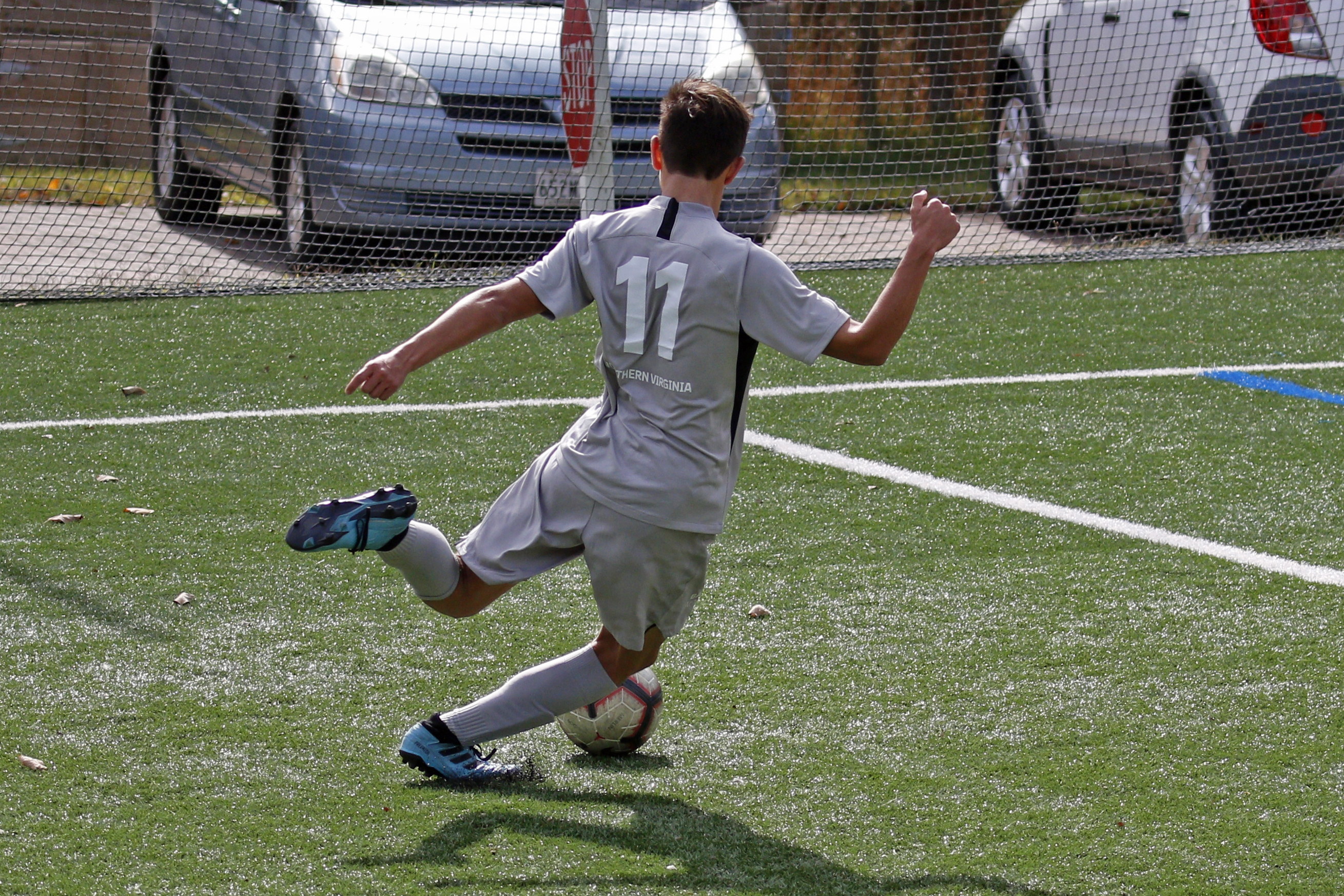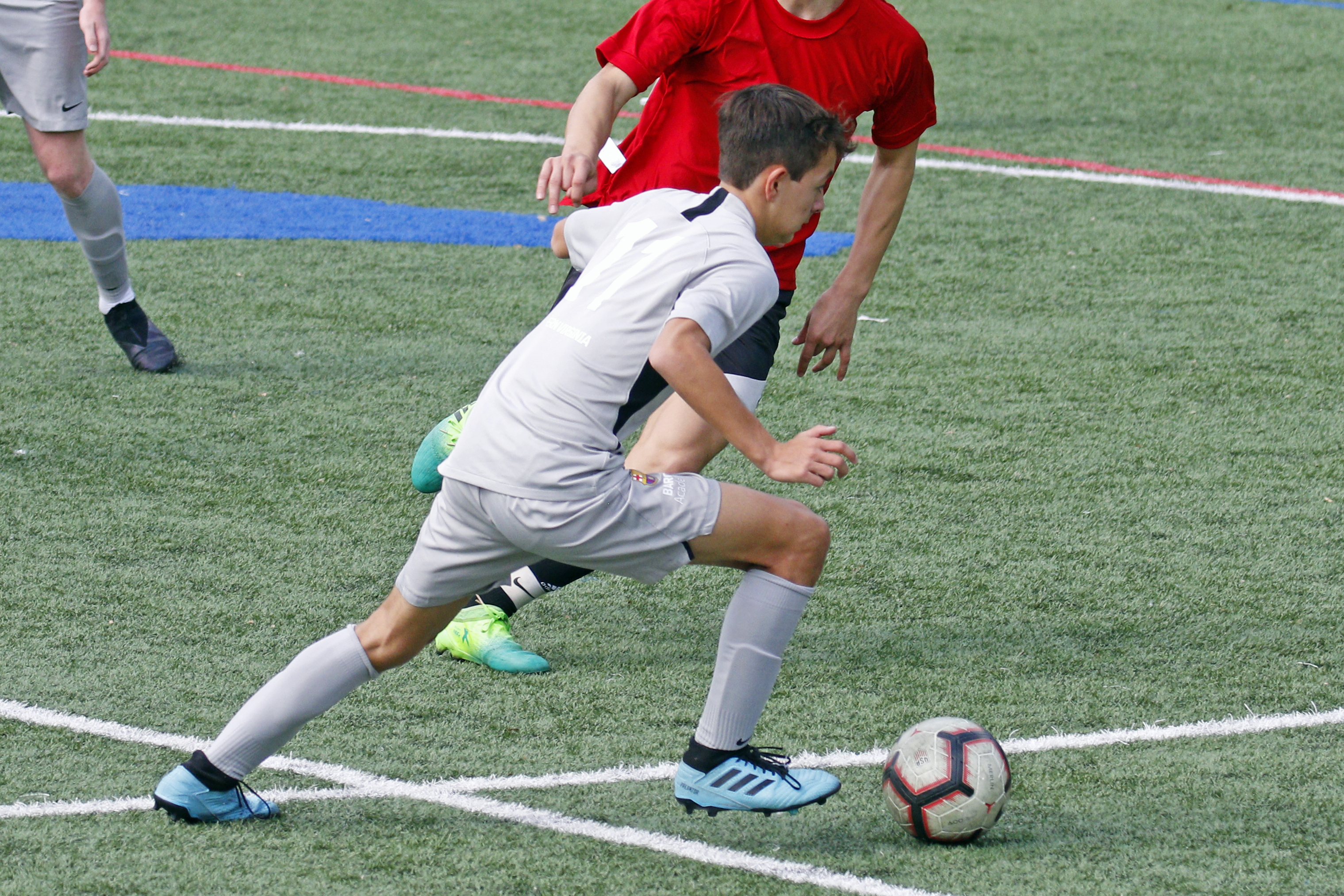Were you one of the hundreds of thousands of parents standing on the sideline of your child’s travel soccer match last weekend despite Covid19? Did you cheer profusely through your mask after every minuscule touch of the ball? Have you had to rein another dad in back from screaming profanities in the direction of the referee because he never mastered the intricacies of the “active rule” within the offside concept? If any of these are true, I can safely say that you are a normal dad and soccer aficionado. I can also stipulate that you are a good parent. Why? Because you take an interest in your kid’s performance. This act of not just investing time but taking an interest is critical in your child’s development and his or her relationship with you. It also improves their performance and understanding of how they fit into this world. Selfishly speaking, it is also a joy to just watch your offspring excel.

One would think it to be quite obvious. Quite honestly, it did not occur to me until a fellow soccer dad with Turkish origins and I chatted over why some kids in our U12 team – including his son – have progressed so much in the last few months while others have not. Quite surprisingly, some of them even regressed.
We feel empowered to make such seemingly harsh judgments because we both grew up playing “street soccer” when we grew up in middle-class households in Europe. The average dad could not care less back then either because it was the Eighties and that’s that. However, we also share the same ups-and-downs of watching our teams not qualify for a World Cup, mulling over our home teams (Rapid Vienna and Fenerbahce Istanbul) choking in the UEFA Cup.
We are from Generation X, which was aware of a much wider field of goleadors beyond today’s digital fame of Messi, Ronaldo, Mbappe, Salah, Neymar and Ibrahimovic. We had our analog soccer demi-gods like Gascoigne, Figo, Baggio, Zidane, Maradona, Gullit, van Basten, Matthaeus, Platini and Cantona. We also collected sticker books of all our heroes.
Essentially, I am saying that we know our stuff or we are pretty good at camouflaging our ignorance when it suits us. We earned our right to complain and break down in tears of joy by being herded into the fan section of stadiums like cattle. We also garnered these privileges, in my case by escaping a royal beating in a north London pub full of drunk English hooligans. I made a quick escape on the local high street after Germany beat England in the 1996 European Cup semifinal in a penalty shoot-out. Behind me, I saw men pouring out of the pub trashing shop windows and bus stops. One word in German out of my mouth and there was a chance I would have been a news story.
These experiences are important to convey to your suburban kid because they form a bond. Shared stories of hardship, joy, and disappointment are important because my sons and daughter realize that it can go either way very quickly, especially in sports. They also understand that personal effort matters. Sport is a meritocracy and they need to understand that much of life works the same. They also need to understand empathy and teamwork – obviously – but just as important is an understanding of where in the performance hierarchy they fit. Participation trophies, I can honestly say, may work on six-year-olds but they are already easily dismissed by slightly older kids to the point of them not being to find the “tin” medal an hour into the car ride back.
To my embarrassment, I made my fair share of mistakes dissecting every mistake my kids made after a game or even practice. Lesson learned. I stopped that routine when I started coaching rec soccer after a licensed coach told me that this will make them hate the sport. He also rightsized my view on how little kids understand the sport, how their bodies handle the physics of it, and how they process feedback. This advice flipped my tirades to simple, increasingly constructive messages around their foot skills, field vision, tactical transition, and communication as well as effort. My youngest son always asks me how he did after every practice. Realizing he needs attention and is fishing for compliments, I tell him what good things I saw today, how he progressed in the last few months, and what room for improvement is left. It is such a routine by now, he parrot-voices every time, “yes dad, there is always room for improvement”. He also banters and trash-talks with his siblings after every game.
These moments don’t happen for many players. If I look around the four teams my kids are on, I would non-scientifically estimate that at least a quarter of parents do not watch most games and more than half do not watch any practices but sit in their cars perusing their smartphones. On my daughter’s team, for example, I am the only parent at the field at practice, rain or shine (will get a medal for that someday) but the other parents discuss what skeleton-design socks to wear for the upcoming game on Halloween. It baffles me how they do not take an interest in player development or just plain winning for a change.

If you do not have a history with soccer, don’t fret. Just start watching some games on TV or YouTube but watch your kid’s practices, attend their games religiously and give them honest feedback. They know when you are there and when you are lying. Your face doesn’t lie no matter how good you think you can act. They know when you sugarcoat an obviously poor performance. They realize fairly quickly who the weakest link in the team is. They know the ball hog, the lightning-fast striker with no foot skills and the midfielder who coughs up the ball when only slightly pressed.
I am not a child psychologist but after four kids who all play soccer at a fairly high level, I learned that their teammates, whose parents do not regularly show up and do not understand their performance in the context of the sport-at-hand and a team, also do not progress. Actually, they often drop out a year or two into travel soccer or when they enter high school at the latest. In my humble opinion, the weeding out of talent is not so much a factor of skill or natural talent, it is driven by their ability to muscle through this valley of despair when no light at the end of the tunnel is visible. Rebounding from their team constantly losing to more athletic teams or only getting ten minutes of field time is hard but this resilience will help them later when life throws them curveballs every other month – forgive the Baseball analogy. As a parent, you have to be part of this trough of disillusionment because you want to be there when they come out of it to say, “I told you so”. Then you can finally flex your age-old wisdom.

